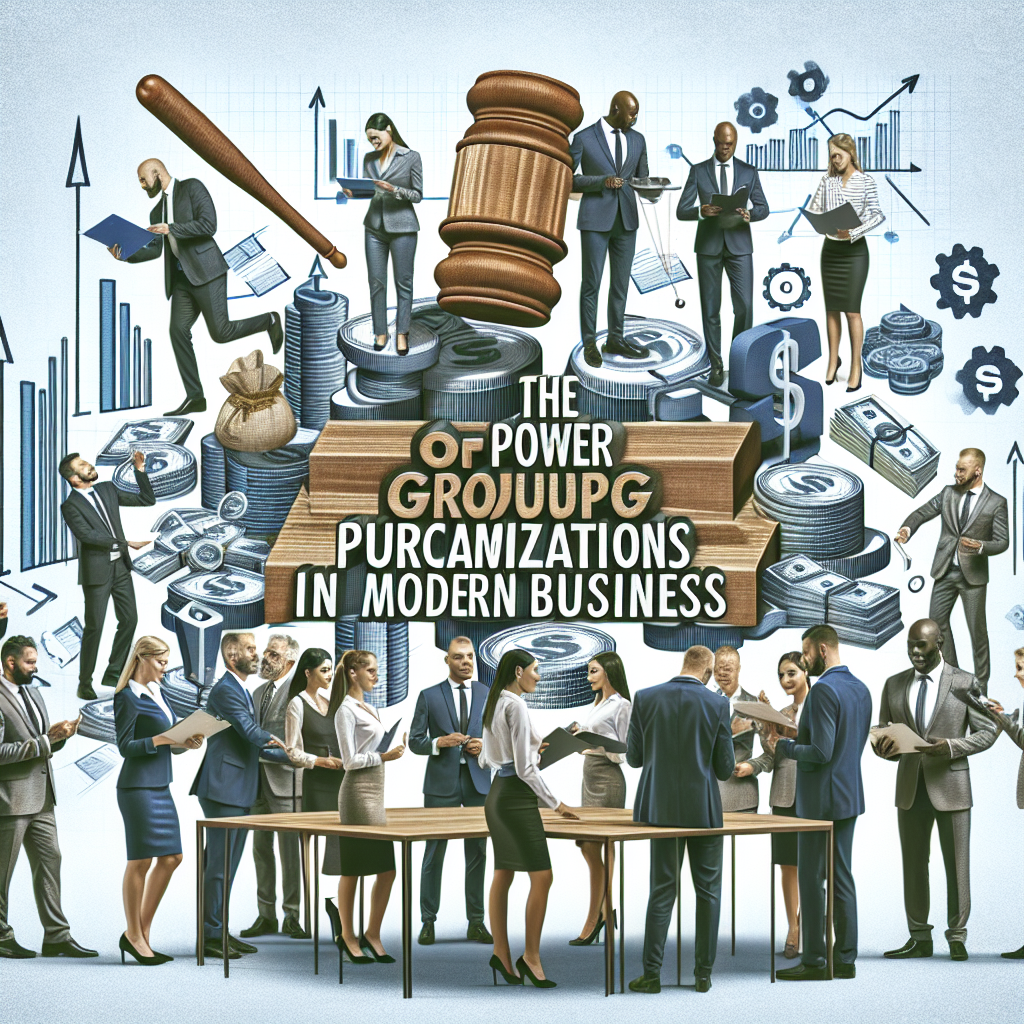Supplier accountability is a critical aspect of any business operation, as it directly impacts the quality, reliability, and sustainability of the products and services provided. When suppliers are held accountable for their actions and performance, it ensures that they adhere to the agreed-upon terms and standards, ultimately leading to better outcomes for the business and its customers. By holding suppliers accountable, businesses can mitigate risks, maintain consistency in product quality, and build trust with their customers and stakeholders.
Furthermore, supplier accountability is essential for maintaining ethical and sustainable business practices. By ensuring that suppliers adhere to environmental, social, and governance (ESG) standards, businesses can contribute to a more sustainable and responsible supply chain. This not only benefits the environment and society but also enhances the reputation and brand image of the business. Therefore, understanding the importance of supplier accountability is crucial for businesses to thrive in today’s competitive and socially conscious market.
In addition, supplier accountability plays a significant role in risk management. By holding suppliers accountable for their performance and compliance with regulations, businesses can minimize the potential impact of disruptions, such as supply chain delays, quality issues, or legal liabilities. This proactive approach to risk management can help businesses avoid costly consequences and maintain operational continuity. Overall, understanding the importance of supplier accountability is essential for businesses to achieve their strategic objectives and sustain long-term success.
Implementing Clear and Specific Contracts
One of the most effective ways to ensure supplier accountability is by implementing clear and specific contracts that outline the expectations, responsibilities, and performance standards. A well-drafted contract serves as a legal framework that governs the relationship between the business and its suppliers, providing clarity and certainty for both parties. By clearly defining the terms and conditions of the agreement, businesses can hold suppliers accountable for meeting their obligations and delivering on their promises.
Moreover, clear and specific contracts help mitigate potential disputes and conflicts by establishing a common understanding of the agreed-upon terms. This can prevent misunderstandings or misinterpretations that may arise during the course of the business relationship. Additionally, contracts provide a basis for recourse in the event of non-compliance or breach of agreement, allowing businesses to take appropriate actions to enforce accountability.
Furthermore, implementing clear and specific contracts can also help businesses align their suppliers with their strategic objectives and performance targets. By including key performance indicators (KPIs), service level agreements (SLAs), and quality standards in the contract, businesses can set clear expectations for supplier performance and hold them accountable for meeting these benchmarks. Overall, implementing clear and specific contracts is a fundamental step in establishing supplier accountability and ensuring a mutually beneficial relationship between businesses and their suppliers.
Regular Performance Reviews and Monitoring
In addition to clear contracts, regular performance reviews and monitoring are essential for maintaining supplier accountability. By conducting periodic evaluations of supplier performance, businesses can assess their adherence to the agreed-upon terms, identify areas for improvement, and address any issues or concerns that may arise. This ongoing monitoring allows businesses to proactively manage their supplier relationships and ensure that suppliers meet their obligations consistently.
Moreover, regular performance reviews provide an opportunity for open communication and feedback between businesses and their suppliers. By discussing performance metrics, challenges, and opportunities for improvement, both parties can work collaboratively to enhance the effectiveness and efficiency of their partnership. This transparent approach fosters accountability and encourages continuous improvement in supplier performance.
Furthermore, regular monitoring of supplier performance enables businesses to identify any potential risks or non-compliance early on, allowing them to take corrective actions before issues escalate. This proactive approach can help businesses mitigate potential disruptions to their operations and maintain a high level of quality and reliability in their supply chain. Overall, regular performance reviews and monitoring are critical components of supplier accountability that enable businesses to uphold their standards and expectations while fostering a collaborative and productive relationship with their suppliers.
Establishing Open Communication Channels
Another key aspect of ensuring supplier accountability is establishing open communication channels that facilitate transparency, collaboration, and feedback. Effective communication is essential for building trust, resolving issues, and aligning expectations between businesses and their suppliers. By maintaining open lines of communication, businesses can address concerns, share information, and work together to achieve common goals.
Furthermore, open communication channels enable businesses to provide constructive feedback to their suppliers regarding their performance, quality of products or services, or adherence to standards. This feedback loop allows suppliers to understand the expectations of the business and make necessary improvements to meet those expectations. Additionally, it provides an opportunity for businesses to recognize and acknowledge suppliers for their exceptional performance, fostering a positive working relationship.
Moreover, open communication channels also allow for early identification of potential risks or challenges that may impact supplier performance. By staying informed about market trends, regulatory changes, or other external factors that may affect suppliers, businesses can proactively address these issues with their suppliers and develop strategies to mitigate potential disruptions. Overall, establishing open communication channels is crucial for promoting accountability, trust, and collaboration between businesses and their suppliers.
Providing Incentives for Accountability
Incentivizing supplier accountability is an effective strategy for encouraging suppliers to meet or exceed performance expectations. By offering incentives such as bonuses, rewards, or preferential treatment for exceptional performance or compliance with standards, businesses can motivate their suppliers to prioritize accountability and strive for continuous improvement. These incentives can serve as a powerful tool for reinforcing positive behavior and fostering a culture of accountability within the supply chain.
Furthermore, providing incentives for accountability can help strengthen the partnership between businesses and their suppliers by demonstrating appreciation for their efforts and commitment to excellence. This can lead to increased loyalty, trust, and collaboration between both parties, ultimately benefiting the overall success of the business relationship. Additionally, it can create a competitive advantage for businesses by attracting high-performing suppliers who are motivated by the opportunity to earn incentives.
Moreover, incentives for accountability can also drive innovation and efficiency within the supply chain by encouraging suppliers to develop new solutions, improve processes, or enhance product quality. This can result in tangible benefits for businesses such as cost savings, improved product offerings, or enhanced customer satisfaction. Overall, providing incentives for accountability is a proactive approach that can yield significant benefits for businesses while promoting a culture of excellence within their supply chain.
Developing Contingency Plans for Non-Compliance
Despite best efforts to promote supplier accountability, there may be instances where non-compliance or performance issues arise. In such cases, it is essential for businesses to have contingency plans in place to address these challenges effectively. Developing contingency plans allows businesses to respond swiftly to non-compliance issues while minimizing potential disruptions to their operations.
One approach to developing contingency plans for non-compliance is to establish clear escalation procedures that outline the steps to be taken when issues arise with suppliers. This may include formal notifications of non-compliance, opportunities for remediation or improvement, as well as consequences for continued non-compliance. By having these procedures in place, businesses can ensure a consistent and structured approach to addressing non-compliance while maintaining accountability.
Furthermore, developing contingency plans may also involve identifying alternative suppliers or backup options that can be activated in the event of non-compliance or disruptions with primary suppliers. This proactive approach allows businesses to mitigate potential risks by having contingency arrangements in place to maintain continuity in their supply chain operations. Additionally, it provides leverage for businesses when addressing non-compliance issues with suppliers by demonstrating their ability to switch to alternative sources if necessary.
Moreover, developing contingency plans for non-compliance also involves conducting regular risk assessments and scenario planning to anticipate potential challenges that may impact supplier performance. By identifying potential risks in advance, businesses can develop proactive strategies to address these challenges effectively when they arise. Overall, developing contingency plans for non-compliance is a critical aspect of ensuring supplier accountability while safeguarding the resilience of the supply chain.
Investing in Technology for Transparency and Traceability
Investing in technology solutions that provide transparency and traceability within the supply chain is another key strategy for promoting supplier accountability. By leveraging advanced technologies such as blockchain, IoT (Internet of Things), or supply chain management systems, businesses can gain real-time visibility into their supply chain operations and track the performance of their suppliers more effectively.
One way technology can enhance transparency is by providing real-time data on supplier performance metrics such as delivery times, product quality, or compliance with standards. This visibility allows businesses to monitor supplier performance closely and identify any deviations from expected standards promptly. Additionally, it enables businesses to make data-driven decisions based on accurate information rather than relying on manual processes or outdated systems.
Furthermore, technology solutions can also improve traceability within the supply chain by enabling businesses to track the origin of products or materials from their suppliers. This capability is particularly valuable in industries where traceability is critical for compliance with regulations or ethical sourcing practices. By leveraging technology for traceability, businesses can ensure that their suppliers adhere to responsible sourcing practices while maintaining transparency throughout the supply chain.
Moreover, investing in technology solutions can also streamline communication and collaboration between businesses and their suppliers through digital platforms or portals. This facilitates seamless information sharing, document management, and workflow automation that enhances efficiency while promoting accountability within the supply chain. Overall, investing in technology for transparency and traceability is a strategic investment that can significantly improve supplier accountability while driving operational excellence within the supply chain.
In conclusion, supplier accountability is a fundamental aspect of successful business operations that directly impacts product quality, sustainability, risk management, and ethical practices within the supply chain. By understanding its importance and implementing strategies such as clear contracts, regular performance reviews, open communication channels, incentives for accountability, contingency plans for non-compliance, and technology investments for transparency and traceability; businesses can foster a culture of excellence within their supply chain while maintaining strong partnerships with their suppliers. These proactive approaches not only promote accountability but also contribute to long-term success by enhancing operational efficiency, mitigating risks, and building trust with customers and stakeholders. Therefore, prioritizing supplier accountability is essential for businesses seeking sustainable growth in today’s competitive market landscape.





